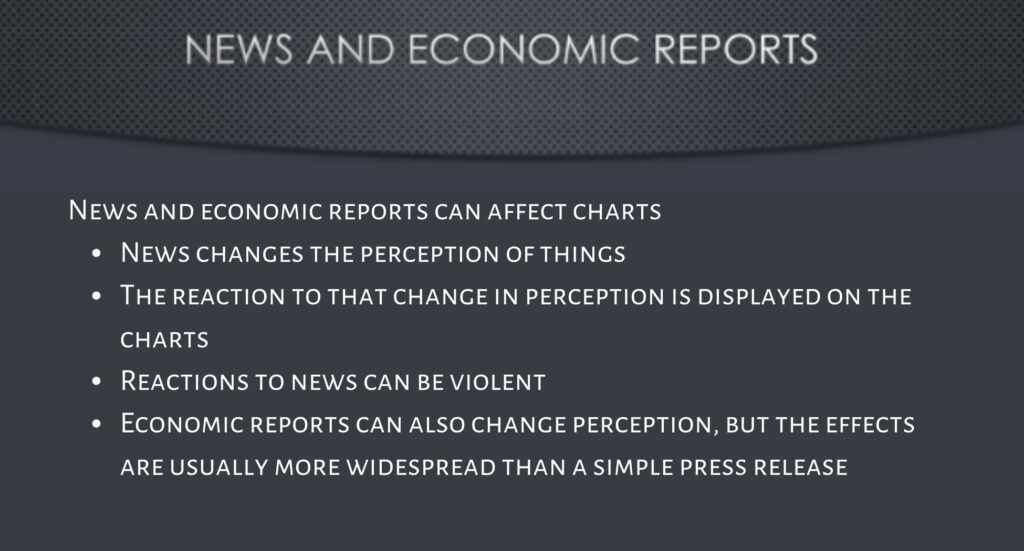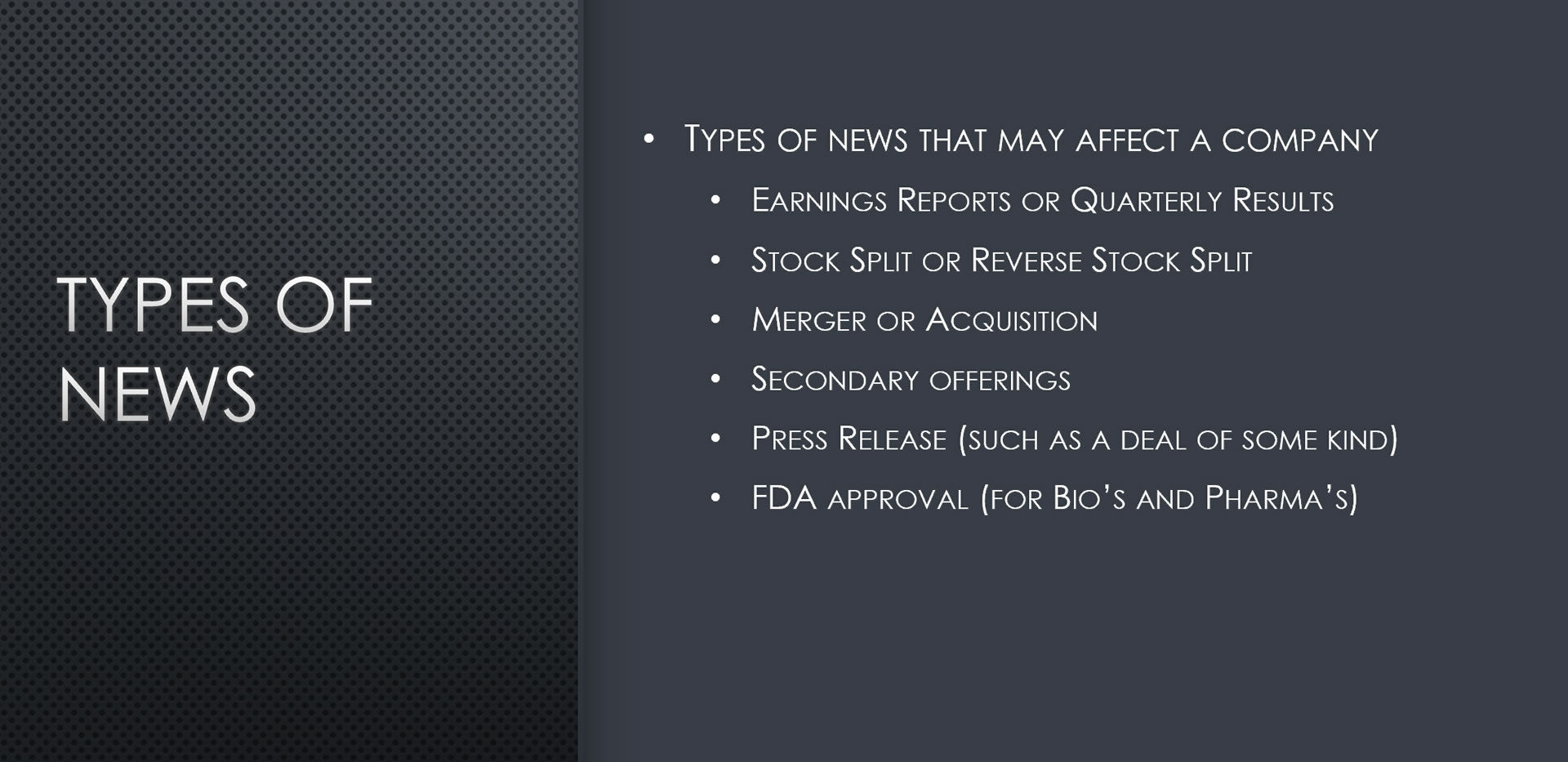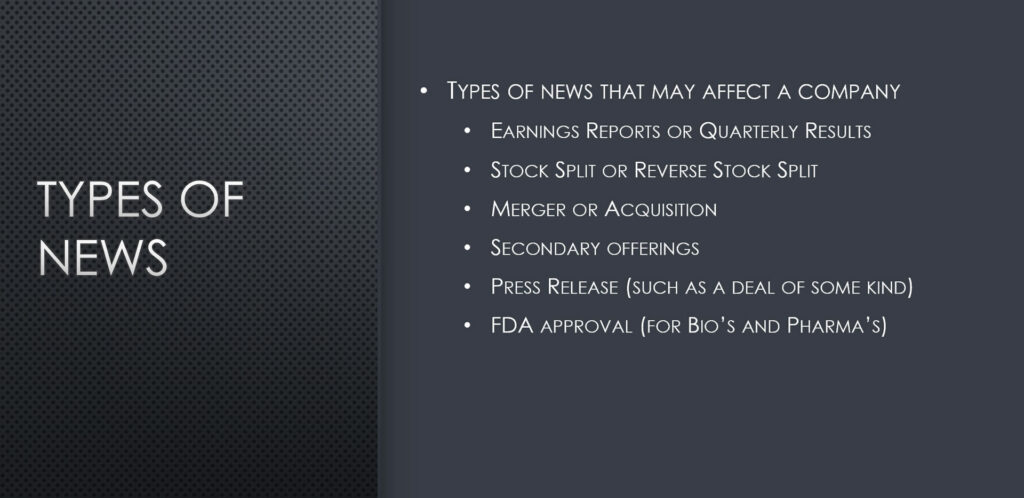Over the last year, it has become increasingly evident that the news and the news cycle play an important role in affecting the financial markets. Let’s begin by exploring how the news is broken down into different categories. We will then explore these broad categories to better understand the types of news and how that interpretation can stick or change through time.
News and economic data helps shape the way we perceive the markets and the value in the markets. The first factor we need to accept is that perception, not reality, is what moves the markets. As perception changes, the markets adapt and change in value, but we must remember that news overpowers technicals. Technicals govern the everyday movement of the markets until a news event occurs that radically changes perception; the technicals then need to readjust.
The categories that we break the news into are as follows:
- Global News Events: Affects the entire market, the entire sector, and the entire industry.Note: Fake news can also have global and local ramifications on markets and stocks. The long term effects of fake news can be damaging to people’s overall confidence in the financial news and financial markets.
- Localized News Events: Affects only the individual stock or the stocks mentioned in the news event.

Note: We’ve seen drastic effects of social memes like those from Wall Street Bets and others on individual stocks such as $GME and $AMC.
Another breakdown in categories:
- Planned or recurring new events
As traders, we prefer to know and list out all of the planned recurring news events such as earnings dates, Fed interest rate decisions, weekly updates on things like oil and gas inventories, non-farm payroll, etc. These events or variables can be and should be prepared for. - Reactionary or spontaneous events
Other news events that cannot be planned for are spontaneous. The markets react to them therefore we call them reactionary. Examples may be a cyber attack or an adverse report relating to drug test results. Since these are events for which we cannot prepare, we can only plan our reaction to these news events after they occur.
As professional traders, we need to break down and list all news events that we can plan for and know exactly which ones are global versus local. We can then plan to deal with all reactionary type news events that may spontaneously happen during the course of our trading day.
Do not waste time trying to analyze the specific news; instead have a planned approach to the type of news and see if it fits into your trading plan. In fact, this is just what the trading algorithms do. They search the headlines for spontaneous or reactionary news events and immediately react to keywords that exist in a headline. Very often that initial reaction might reverse as the actual data gets reviewed by human analysts and could potentially be digested differently than initially thought when released based on only keywords.
“Buy the rumor, sell the news” as is often stated on Wall Street. News will have an impact and, ensuring you have a plan in place, will further aid in your ability to successfully understand and trade the markets.
Written by Michael DiGioia, Director of Institutional Sales
Mike is available for One-on-One Coaching. Learn More






